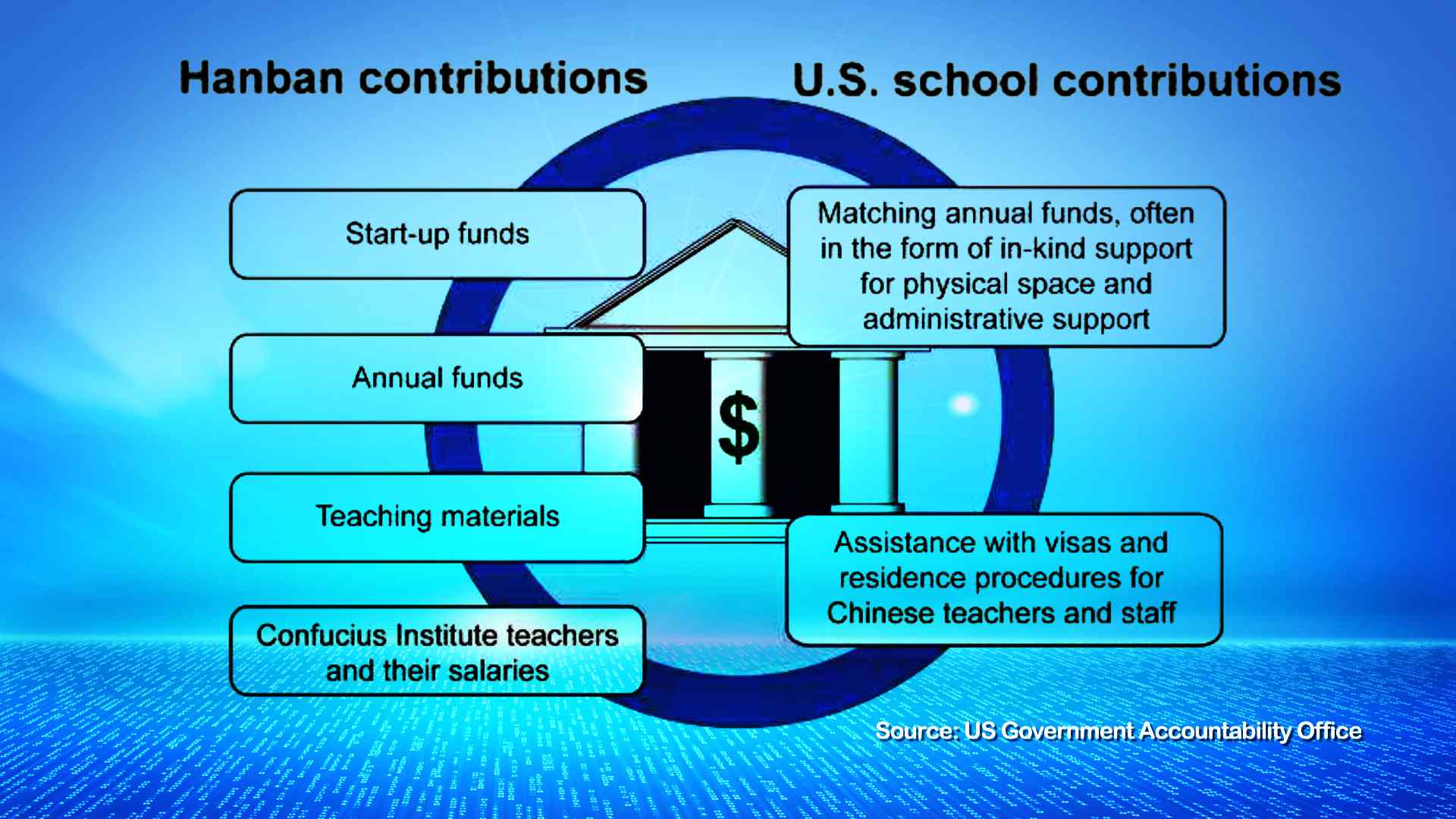
20:06, 18-Mar-2019
U.S. doubts on Confucius Institute "part of ongoing China vilification"

A long bell has been ringing on China's soft power. In a recent interview with Fox News, U.S. President Donald Trump's national security adviser, John Bolton, said China is on an attempt to use think tanks and non-profit organizations to influence opinion in the U.S. and Australia, and the move "is far greater in magnitude than any other foreign effort we have seen in history."
Members of U.S. Congress also have noted concerns about Confucius Institutes being financed or used for propaganda purposes by the Chinese government.
“This is part of ongoing vilification of China,” said Einar Tangen, referring to the arguments against Confucius Institute. “The U.S. has a marred optic ever since Trump came into office.” Trump, according to Tangen, is using foreigners as the common outside enemy to unite the States.
However, according to a recent report on Confucius Institutes' establishment and operation conducted by the U.S. Government Accountability Office (GAO) to congressional request, the officials at 10 case study schools said they do not use materials provided by Hanban, an affiliate of the Chinese Ministry of Education for credit-bearing courses, and school officials stated that Hanban did not place limitations on events of any type.
The report was aimed to examine how much influence Confucius institutes may exert over campus and operations. And it was meant to address concerns by Members of Congress, researchers, academics, and others over the Institutes' connection with the Chinese government.

Han Hua, a research fellow from Chongyang Institute for Financial Studies, Renmin University, highlighted the time when China established its first Confucius Institute. “15 years ago, China was a rising power back then and there is a strong need for China and the world to know each other,” Han Hua said.
Confucius Institutes are no different than the cultural centers established by other countries, such as German Goethe Institutes, Spanish Cervantes Institutes, and French Alliance Francaise, according to Han.
Confucius Institutes are overseen and funded in part by the Office of Chinese Language Council International, or Hanban, an affiliate of the Chinese Ministry of Education.
By the end of 2018, 548 Confucius Institutes were established in 154 countries and regions around the world. Among them, 126 are in Asia, 59 in Africa, 182 in Europe, 160 in the North the South Americas, and 21 in Oceania.
"The universities will be the first to object if there is some kind of leash put on them," said Tangen, adding that "this is the opportunity to introduce Americans to Chinese language and culture. It is all about making yourself known."
Adding on this point, Han further emphasized that Hanban does not assert any curriculum requirements on these institutions. “That is the real finding,” she said.

Statistics show Confucius Institutes are funded by both sides
Statistics show Confucius Institutes are funded by both sides
Statistics also show that Confucius Institutes are funded by both sides. Hanban generally provides start-up funds, annual funds, Confucius Institute teachers and their salaries, and teaching materials.
Hanban has also agreed to provide funds ranging from 900,000 U.S. dollars to 1.7 million U.S. dollars to construct new facilities for at least three schools designated “Model Confucius Institutes.”
The U.S. school hosting a Confucius Institute generally provides annual funds matching Hanban's contribution, as well as physical space and administrative support.
SITEMAP
Copyright © 2018 CGTN. Beijing ICP prepared NO.16065310-3
Copyright © 2018 CGTN. Beijing ICP prepared NO.16065310-3